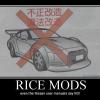Compressor Surge-Does it Really Matter
Announcements
-
Similar Content
-
Latest Posts
-
Thanks mate, couldn't find in VIC, ended up ordering one from NSW, getting rwc to get new plates and registration done.
-
By Dose Pipe Sutututu · Posted
Before all the EFR fan boys come in, have a look at: https://www.garrettmotion.com/racing-and-performance/performance-catalog/turbo/g-series-ii-g30-825-58mm/ It also comes in a T4 1.06 divided housing. I would dare say if you want response & also decent power, this thing would chop. AND apologies, just re-read your post, you've already bought the turbo... whatever you do, make sure you stick with divided housing and proper twin scroll manifold. -
People have got to stop doing that. ShatGPT is not a search engine. It is a hallucination factory. I also would recommend the 1.05. The .83 will "work" for you , in that it will be more responsive, but I think you'll find that it won't be anywhere near as good running it out to 8000rpm as the big housing will be.
-
Decided for the first time ever I would tow my car TO the track day on the same working theory as bringing tools and spares "if I have it I wont need it, but if I leave it behind i will 100% need it" all setup and ready to go out and try these A050 for the first time First session showed I needed to stiffen up the dampers a touch but still managed a few 1:21's without much effort. things were looking good. Came in a dropped the tyres down to 26/28 as they had gotten to 35/33C from 22C cold The first lap of session two I managed to drop into 1:20's. Then in the second lap into the second session. Coming into T3 and I suddenly lost brake pedal followed by some huge rear end vibrations and scraping sounds. Got it back into the pits after session ended and found this. in the attached video, all of the wobble is in the hub its self, wheel is mint, and bearing feels tight. lKXLqpd - Imgur.mp4 Deciding it was a bent spindle I tried to find bearing/hub assembly locally but was unsuccessful so it was loaded back onto the trailer i luckily brought it on to drag it back home
-








Recommended Posts
Create an account or sign in to comment
You need to be a member in order to leave a comment
Create an account
Sign up for a new account in our community. It's easy!
Register a new accountSign in
Already have an account? Sign in here.
Sign In Now